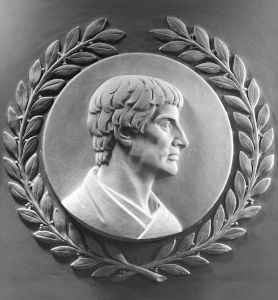Bibliographie complète
Can Gaius Really Be Compared To Darwin?
Type de ressource
Auteur/contributeur
- Samuel, Geoffrey (Auteur)
Titre
Can Gaius Really Be Compared To Darwin?
Résumé
When invited by counsel in the 1947 case of Read v. J. Lyons & Co' to rationalise the law of tort, Lord Macmillan's response was to say that it was not the House of Lords' "task to rationalise the law of England" since arguments "based on legal consistency are apt to mislead for the common law is a practical code adapted to deal with the manifold diversities of human life, and as a great American judge [Holmes] has reminded us, 'the life of the law has not been logic; it has been experience' Professor Peter Birks has recently reacted to this attitude by declaring that what English law needs is perhaps a little more logic, or at least less "fallacy and contradiction". Indeed he has gone further. In an important published lecture he argues that the law of tort is in need of rationalisation. And, in his view, order in the law of tort will be achieved only "when we first separate out degrees of fault-strict liability, negligence, malice-and then ask, in relation to each degree, what interests are protected". The problem, says Birks, is the English lawyer's "alarming" lack of awareness of the importance of taxonomy. This in turn is linked to the decline in the study of Roman law which means that students are no longer exposed to the Institutes which "provided a map" of the law. This map, says Birks, is fundamental to the forming of legal minds. And to underline the point he declares that, in first formulating this map-this systematic overview-"Gaius was the Darwin of the law". What is one to make of this debate? To pose this question is to open the door to a range of possible responses. Not only may one ask whether the contribution of Gaius can really be compared to the contribution of Darwin. Can legal science, in other words, realistically and profitably be put side-by-side with the natural sciences or is it like trying to compare, say, astrology with astrophysics? But it also opens up the whole issue of knowledge in legal studies. Is taxonomy in law important? Ought logic to be given a central role in any examination of legal method and legal skills? In short, is Professor Birks opening up a profound debate or is the whole idea of law and its relationship with the natural sciences something that should be left to history? It is the purpose of this article to investigate the validity of trying to compare Gaius with Darwin. It will be argued that the structural-that is to say conceptual-model that underpins all notions of legal "logic" is of a different kind than the models which underpin the natural sciences. The legal model is incapable of being verified-if indeed it can be verified at all-in the same way that a zoological scheme of taxonomy can be verified. Legal intellectual schemes are, certainly, capable of internal contradiction, but often apparent contradictions are not the result of internal incoherence. Apparent contradictions often result from misunderstanding about the nature of legal concepts and about the relationship between these concepts and the objects they are attempting to model. Thus there are dangers in thinking that legal rationality is necessarily the same as zoological taxonomy.
Publication
International and Comparative Law Quarterly
Date
2000
Volume
49
Numéro
2
Pages
297-329
ISSN
00205893 14716895
Archive
Ariane Articles
Loc. dans l'archive
cambridgeS0020589300064174
Titre abrégé
Can Gaius Really Be Compared To Darwin?
Catalogue de bibl.
Ex Libris Primo
Référence
Samuel, G. (2000). Can Gaius Really Be Compared To Darwin? International and Comparative Law Quarterly, 49(2), 297‑329. https://doi.org/10.1017/S0020589300064174
Revue de littérature
Lien vers cette notice
